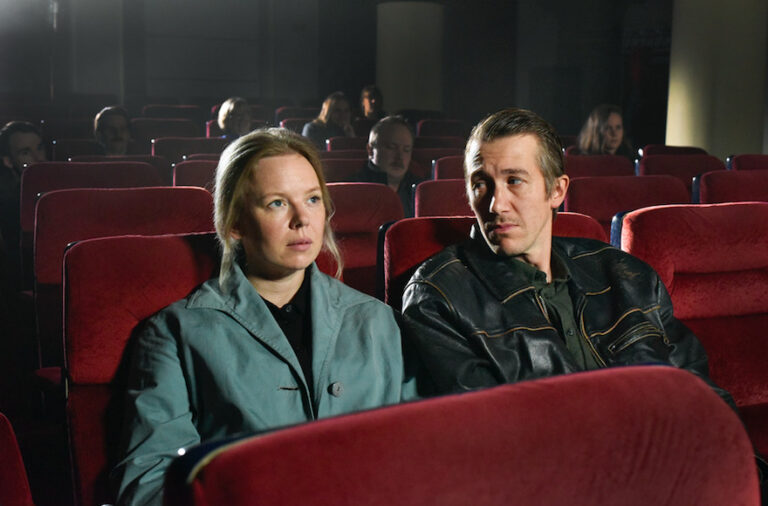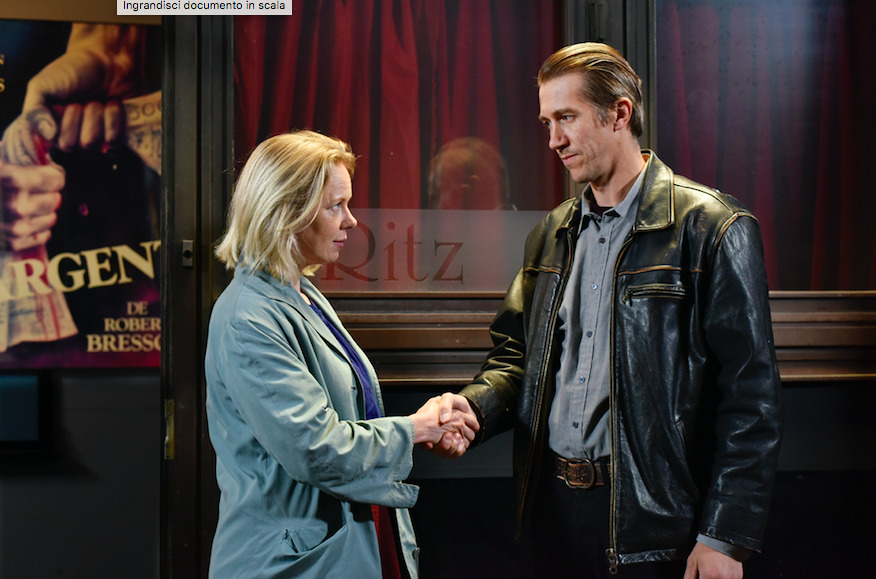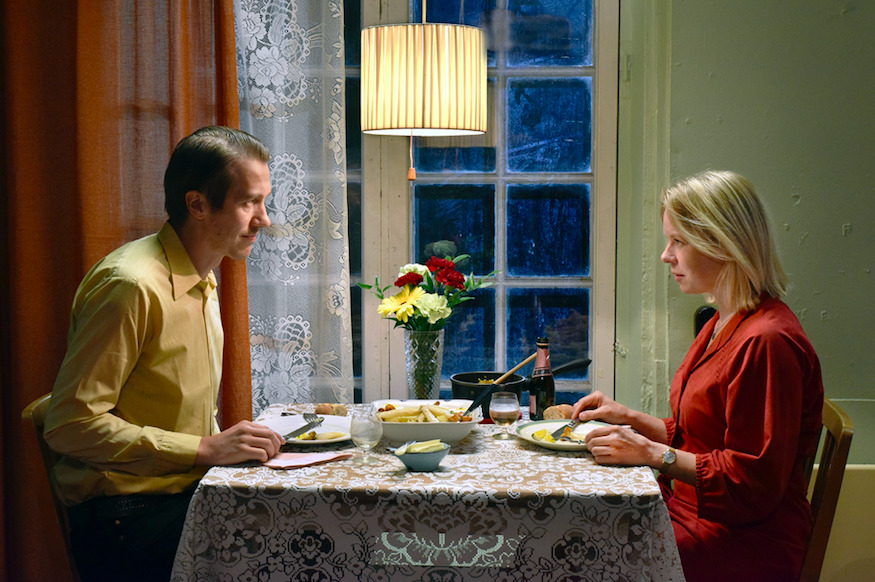
The latest work by the award-winning filmmaker Aki Kaurismäki won the Jury Prize at the 2023 Cannes Film Festival, and was chosen as the Finnish entry for Best International Feature Film at the 96th Academy Awards.
Fallen Leaves is a simple tale of romance between two misfits who have to overcome several hurdles to finally unite. But beneath the surface, there is so much more that the film reveals about the country of the filmmaker, as well as his distinctive style. The humanist director chooses to name his latest work after a song by Jacques Prevért and Joseph Kosma: Fallen Leaves (Les feuilles mortes). The lead characters epitomise a line from the original song: “the dead leaves picked up by shovel,” by all means they are considered the scum of society. They are lost souls in a modern world that alienates them from their surrounding environment, and yet they pick each other and find a way to uplift themselves.
The picture is set in modern day Helsinki, and follows the lives of Ansa (Alma Pöysti) and Holappa (Jussi Vatanen). The woman initially works in a supermarket, but is dismissed from her job and moves on to another unfulfilling position. Holappa works as a metalworker and drowns his frustration in alcohol. These two lonely individuals meet by chance in a karaoke bar. They are shy and it takes a while before they manage to go on a date. A coffee with a pastry is followed by a cinema screening, and the two decide to meet again. But several misadventures will complicate matters.

This simple love story lays the foundations for a broader analysis. The rom-com firmly denounces the world of work in Finland, while maintaining Aki Kaurismäki’s idiosyncratic style and impassive sense of humour. The subdued irony that traverses the film acts like a balm to soothe, not only the daily hardships that the lower class confronts in Finland, but also the news that arrive from abroad, like the war in Ukraine.
Everything is essential and minimalist, from the costumes to the sets, as well as the performances of the actors. Ansa, Holappa and their mutual friends — Huotari (Janne Hyytiäinen) and Liisa (Nuppu Koivu) — are a symbol of class struggle, they represent the proletariat of Helsinki. They have to navigate between contracts in which there are no social guarantees and confront continuous financial apprehensions. Their city offers little entertainment, a bar to drink, a karaoke to sing, and a cinema to watch old movies. Throughout these locations Aki Kaurismäki sprinkles elements that express his love for cinematic milestones. Spectators leaving the movie theatre compare the film they just saw — Jim Jarmusch’s The Dead Don’t Die — with Robert Bresson’s Diary of a Country Priest and Jean-Luc Godard’s Band of Outsiders. Meanwhile, people chatting in a café are seated next to a poster of Luchino Visconti’s Rocco and His Brothers. The utmost homage is at the end, with a reference to Charlie Chaplin’s Modern Times.

Actors Alma Pöysti and Jussi Vatanen have the perfect deadpan chemistry. They express their emotions with imperturbable flair. Ansa literally means ‘trapped’ which is exactly the situation of the character. The single and lonely woman works on a zero-hour contract and seems to be stuck in a hopeless existence. Holappa is known only through his surname, which is the most common in the country. He is one of many, also when it comes to finding an escape to dreariness through alcohol.
The film marks Kaurismäki’s 20th full-length film and a continuation of his Proletariat series, which was originally planned as a trilogy and already includes Shadows in Paradise (1986), Ariel (1988), and The Match Factory Girl (1990). Fallen Leaves expands on the topic, also portraying what it means to fall in love further on in life. The bittersweet tragicomedy, through its dawdling undertones, serves as a vigorous reminder of the enlightening and humanising power of motion pictures.
Final Grade: B+

